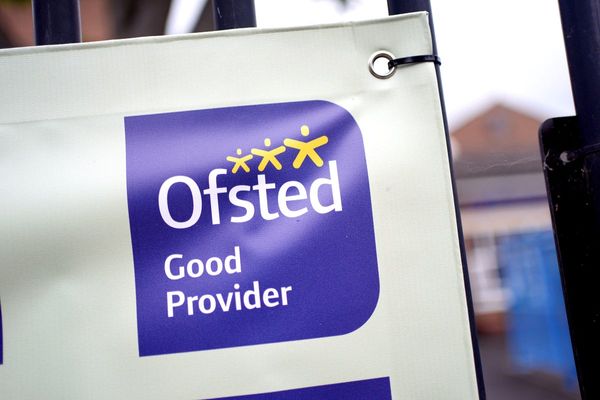
Here we are then, at last. The chrysalis has finally hatched. The thing that was always going to be the thing has now become the thing. Welcome to a very Premier League kind of coup.
As news emerged of Manchester City’s potentially devastating legal case against English football’s top tier it was tempting to see a kind of parable. Here we have a league founded out of greed, for the future benefit of greed, which now finds itself threatened with internal detonation by – yes – greed. Invite a tiger in for tea and the tiger might be fun. But it’s also still a tiger. And in the end it’s going to eat you too.
This isn’t the whole story however. Greed may have opened the door. Greed made ushering an ambitious nation state into your inner sanctum look like a really great idea with no possible downsides. But it isn’t greed that’s going to pull the trigger. This is about control, hard power and a quarter century of yee-hawing wild west governance and oversight.
Allow hyper-ambitious nation states to buy your sporting institutions, and, well, you might just end up with an unhappy hyper-ambitious nation state on your hands. Not to mention a sense that nobody, right now, has any kind of control over how this ends up.
More immediately, scanning down the public details of City’s legal claim, it is hard to decide which is the most nauseating aspect of the whole affair. Perhaps it is the ragbag of populism and hot-button shouting tagged on by City’s lawyers and mouthpieces.
See for example the deeply cynical Trumpian framing, the idea that this is a battle being fought against “the elites”. Here we have a richer-than-god inherited monarchy, owners of the most powerful football club in the world, somehow presenting themselves as outsiders. When will the boundlessly rich kings and princes of the overclass finally be allowed to take a seat at the top table? Other than now, and for ever, in every single sphere of life?
Then again, perhaps the most nauseating part is the free market libertarian nonsense, the “commercial freedom” stuff often parroted around this issue by people who don’t understand what a free market is. This relates to the absurd suggestion that allowing a propaganda entity to spend whatever it wants for non-commercial reasons is somehow “allowing the market to function”.
In reality it is the opposite, a distortion of the market via state subsidies and PR aims that have nothing to do with value or competition, that lead us into such appalling non-market outcomes as Neymar being sold for €220m. The ghost of Milton Friedman says: this is not capitalism. It’s closer to the command economy.
Then there’s the dreadfully tin-eared phrase “tyranny of the majority”, used here to describe that most tyrannical of things, democracy. In its proper context John Stuart Mill’s quote is supposed to describe a state of mob rule, where no institution regulates the urges of the herd. Not so much the richest guy at the table failing to get his way in a boardroom vote.
But then, this is the autocratic billionaire lens. L’état c’est nous. And nothing must be allowed to intrude on the exercise of power. Does that really sound like sport?
It is important to remember none of this is actually meant in good faith. It is simply public relations, a way of stirring useful anger. It is also not really “Manchester City” pursuing these ends, but the entity that owns and controls it, a government with a very clear policy agenda.
There are no good elite football owners. Hedge funds and leveraged buyouts are their own kind of evil. But the basic question here seems ever more profound. Why, other than blind stupid greed, would anyone want a government to own a football club?
Governments are not benevolent enterprises. The UK government sells arms and kills people to protect its own interests. The US government is an imperialist machine. What did we expect Abu Dhabi to do here exactly? Play nice?
The direct analogy would be the British government buying, say Royal Antwerp, splurging billions of pounds of its GDP on winning the Belgian league while Antwerp’s fans say this is all great, and Antwerp thanks you Grant Shapps, before eventually suing the Belgian league into oblivion for refusing to allow us, the UK government, to rewrite its rules.
And yet this kind of ownership has been waved through at City and Newcastle United, and remains explicitly preserved in the draft football governance bill. Despite the fact the potential consequences of all this could be disastrous for English football.
A key issue in City’s claim, abolition of the associated party transaction rules, would remove any ceiling on how much money a state owner can pump in to a club. This would destabilise every part of the game, destroying every lever that isn’t pure hard cash. What’s the point in building a team, or grooming players for anything other than sale to your nation-state overlords? Once an entity with bottomless pockets is permitted to deploy that wealth however it pleases, it basically owns the stage.
There are two things that could in theory be done to resist this. The first is the Premier League could threaten to eject City. The league has that democratic right (sorry, chaps, that word again) to expel any member threatening its stability, for example, by taking punitive legal action demanding damages for enacting its own rules.
The fact there is zero chance of this happening is just as telling. Essentially, the league can’t afford it. The product would collapse. Freed from the yoke of membership City would bleed it white through the high courts. What you have here is a club that can in the end do as it wishes, because its budget will always be bigger, because it is not a commercial entity but a state. Did anyone ever actually think this through?
The other thing that could happen, but also won’t, is that government could take an interest. We must ask again why it is deemed unacceptable for a PR-hungry state to own the Daily Telegraph, but fine for a PR-hungry state to own a Premier League club.
There is a case to be made that Manchester City are a far more significant broadcaster than the Telegraph. They have 22 million followers on X, five times as many as the Telegraph. They have global reach and a cult of loyalty. They will use that to project a message, while also taking steps to destabilise a key British industry.
And yet, of course, given the potential trade issues, there will be zero interest in regulation. The top tier of English football can be rinsed through the courts by an overseas state, a clear tactic to diminish its power to resist, and analogous to the Slapp lawsuits the government is currently taking a stand against.
But then, there are so many structural elements to this that feel irreversible. This isn’t just City and Abu Dhabi. The Premier League could soon be assailed on all sides by everyone from unhappy shipping tycoons, to unhappy US hedge funds, to soft power hungry states. Invite an entire pack of tigers to tea, and, well, it might not end that happily.
More broadly the most depressing aspect is the wider issue with this entire public circus, illuminated by the willingness of football supporters to engage, the vulnerability of people to this level of engineered tribalism, the feeling that all you really have is a choice of which “elite” to back, a failure of basic concepts, meaning, agency.
Football’s vulnerability to this is no more than a bellwether of the wider swirls of digital rage, manipulation and post-truth politics. Go well, plucky sky blue underdog as you enter the establishment den, concerned only with fair competition and fighting for the little man. For the first time it is possible to see an end game here for the Premier League, and it isn’t very pretty.







